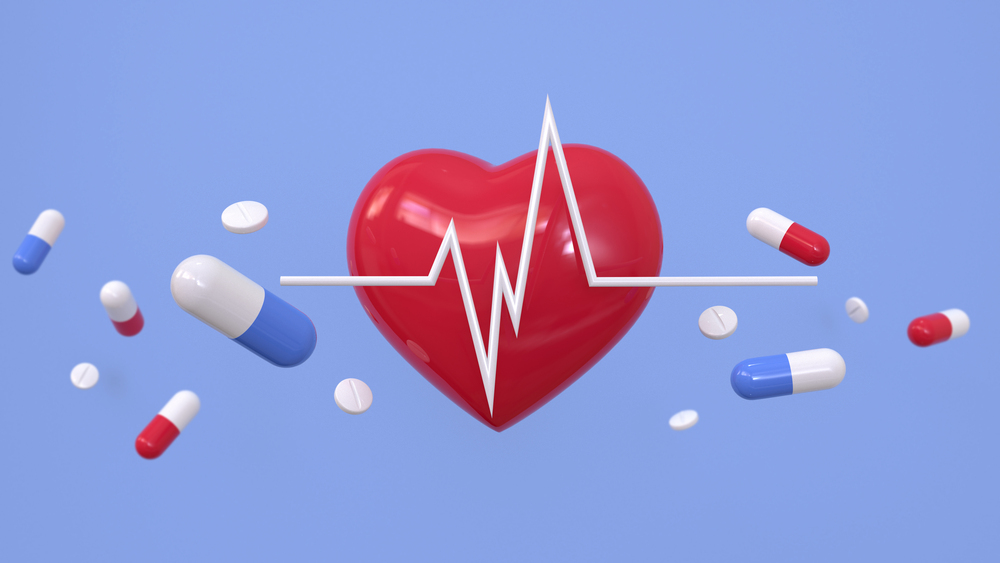A new piece of research presented at the 2024 American College of Cardiology conference finds that ADHD stimulant use is linked to cardiomyopathy. The study, led by Pauline Gerard of the University of Colorado, found that young adults who used ADHD stimulant drugs for longer periods had significantly higher odds of developing cardiomyopathy, a serious disease of the heart muscle.
“Our findings reveal a progressively elevated risk of cardiomyopathy associated with the duration of stimulant medication use in young adults with ADHD,” the authors write. “This underscores the need for a deeper understanding of the cardiovascular risks tied to ADHD stimulant medications, highlighting concerns about safety and the importance of considering alternative treatments.”
The current work was presented at a conference, and the abstract was published in the Journal of the American College of Cardiology, but the full results have not been published. This means the current work has not been through peer review.
The study adds to growing evidence of potential long-term harms associated with stimulant drugs like Adderall, Ritalin, and Vyvanse. Previous research has linked these medications to cardiovascular issues, altered brain development in children, psychosis, and stunted growth. Investigative journalists and researchers have argued that the dramatic rise in ADHD diagnoses has been driven, in part, by pharmaceutical industry influence. Journalist Alan Schwarz has notably accused drug companies of “manufacturing” the ADHD epidemic to expand markets, regardless of the long-term effects on patients.
















Idk if it’s just me or a problem with the website but is this study really not even 1 page long? Really hampers its credibility since you can’t verify the methodology and controls. Also, both groups experienced a rise in cardiomyopathy(although small overall in both). So not sure if the ADHD meds are the causative factor given the lack of details. The risk of not medicating ADHD on the heart is greater since most abuse caffeine at high levels(4-500mg) or Alcohol, which likely has a higher heart risk than ADHD Stimulants.
Report comment
To answer Pat…
From this article: “The current work was presented at a conference, and the abstract was published in the Journal of the American College of Cardiology, but the full results have not been published. This means the current work has not been through peer review.”
The linked study is the abstract, not the full study. It’s a statistical analysis which appears to show a greater increase of cardiomyopathy in the people using stimulants.
The synergy between stimulants doesn’t seem to be factored in to these kinds of analyses primarily because no accurate data exists in large enough populations over a significant period of time.
People just aren’t tracking their stimulant use and submitting it to their healthcare providers. Caffeine, processed sugar, alcohol in small amounts, illicit amphetamine, illicit cocaine, and other legal dietary stimulants, just aren’t something most people are much concerned about.
Probably the biggest risks of developing cardiomyopathy are genetic, in the sense of, only some people are going to develop problems, and currently no method exists to single them out and help them avoid future problems by avoiding stimulant drugs.
The best method to avoid cardiomyopathy appears to be regular exercise coupled with an ascetic lifestyle involving a diet of humanely harvested dandelion petals stocked up with ethically sourced insects that died of natural causes.
Report comment
Any time I see an article on heath news, studies, new findings etc. I read the article & by default I consider what’s written as though it’s legitimate & straight forward.
However, my “by default” innocence has been shattered, stolen from me over the last several years since learning of Profits over Patients. There’s always an angle. The panic narrative is likely the infancy stages for some big upset down the road.
I suspect things like energy drinks or other contributing factors weren’t a part of this “study.”
The trend continues to be (if something rx proves to be sustainable & effective they’ll find ways to demonize it until it’s easier to restrict, limit, ban).
After all it’s far more lucrative to create issues or refuse access to successful treatments.
Dig your heels in, Folks. It’s gone too far.
Report comment
Yes Jackie! As I stated in my reply to Pat above, almost everyone I know who has ADD/ADHD who does not take meds, does drink tons of caffeine, smokes cigarettes or vapes, and often they drink to relax or smoke weed habitually.
Report comment
Jackie, like you I find myself jaded by pharmaceutical companies who want to find more lucrative treatments, or do-gooder individuals and politicians who mistakenly apply a one-size-fits-all approach to eliminate whatever treatment or medication they feel is “dangerous” (think vaccines for children and pain medicine for chronic pain). As I stated above in my response to Pat, almost everyone I know who has ADD/ADHD, but who does not take adhd meds, drinks tons of caffeine, smokes cigarettes or vapes, and often they drink alcohol to relax or smoke weed habitually. Are any of these habits included in the records of the people who took part in this study? Could any of these habits have an effect on cardiomyopathy? I don’t know, but legitimately structured research would look at a variety of possible causes for cardiomyopathy, not just one cause.
Report comment
It sounds like those who did NOT take ADHD drugs had better heart conditions, regardless of whatever caffeine, cigarettes or whatever else they use. It is apparent that the effect is due to stimulant drugs, not other lifestyle issues of non-stimulant users, as these ought to push the needle in the other direction than what they found.
I would also remind you that “people who have ADHD” is not a scientifically definable variable. If you mean people DIAGNOSED with ADHD, it might be a good habit to clarify that. Folks are diagnosed for all kinds of reasons, and again, there is no scientific way to differentiate them from each other as “having” or “not having” ADHD or any of the other DSM “diagnoses.” It is difficult to really evaluate the scientific studies without keeping this important fact in mind. We are not working with a well-defined homogeneous group here, and the only clear variable is drug usage.
Report comment
such a bananas world, time after time we ignorantly swallow chemicals for DSM nonsense with zero informed consent, but even the fully duped must surely know chemicals have consequences?
Report comment
I thought this was already a fact. I suffered a cardiomyopathy several years ago from overprescribed Ritalin. The cardiologist said it is rare, but not unheard of, and I was fortunate to survive it, that most don’t. He said stimulant-based cardiomyopathy is more common with cocaine users (which I’m not), which earned it the name, “coke heart.”
Report comment